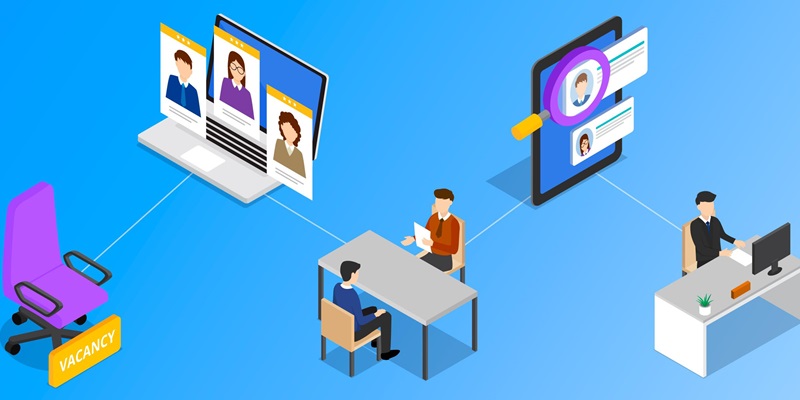In today’s digital era, human resources (HR) departments rely on technology to streamline and optimize their operations. The gathering and retention of HR data plays a pivotal role in facilitating various functions within an organization. HR software solutions have emerged as essential tools for managing HR processes effectively. This article will delve into the three main types of HR software solutions: HRIS, HCM, and HRMS, highlighting their unique features and benefits.
HRIS (Human Resources Information System)
A Human Resources Information System (HRIS) serves as a comprehensive record-keeping system that meticulously logs changes related to employees. It is an integrated platform that automates administrative tasks and simplifies HR operations. One key feature of an HRIS is the automatic logging of employee work hours when they clock in and out, facilitating accurate timesheet management. By capturing this data in real-time, organizations can minimize errors and ensure fair and compliant compensation practices.
Furthermore, HRIS streamlines the onboarding process by allowing new employees to input their information just once. This information is then automatically updated in the relevant departments, eliminating the need for manual data entry across various systems. By reducing administrative burdens, HRIS enables HR professionals to focus on more strategic initiatives.
HCM (Human Capital Management)
Human Capital Management (HCM) places a strong focus on an employee’s journey within the organization, spanning from talent acquisition and management to optimization. It delves deeply into employees’ career journeys to ensure job satisfaction and high retention rates.
HCM offers various features that streamline HR processes. For instance, it includes advanced talent acquisition tools that help organizations attract and hire top talent. These tools include applicant tracking systems, interview scheduling, and candidate assessment capabilities. Once hired, HCM provides comprehensive performance management features that promote employee engagement and development. By aligning individual goals with organizational objectives, HCM enables managers to provide regular feedback and establish clear development plans.
Additionally, HCM supports strategic workforce planning by providing insights into employee skills, competencies, and career aspirations. This data allows HR professionals to identify skill gaps, develop training programs, and address succession planning.
HRMS (Human Resource Management System)
HRMS combines the functionalities of HRIS and HCM while placing additional focus on the administrative facets of employee relations. It includes features such as payroll management, benefits administration, and compliance tracking. HRMS serves as a centralized system for managing employee data, automating routine HR tasks, and ensuring HR policies and procedures are implemented consistently.
Benefits of HR Software Solutions
Implementing HR software solutions offers several benefits to organizations. First and foremost, task automation and data management capabilities save valuable time for HR professionals. By eliminating manual processes and reducing paperwork, HR software solutions free up valuable resources, allowing HR teams to focus on strategic initiatives such as talent management and organizational development.
Moreover, by streamlining processes and reducing paperwork, organizations have the opportunity to reshape the roles of both managers and employees. With HR software solutions in place, managers can become more strategic in their decision-making, leveraging data-driven insights to drive employee engagement and productivity. Employees, on the other hand, can benefit from self-service capabilities offered by HR software solutions, such as accessing their own data, requesting time off, and managing their benefits. This empowers them to take ownership of their HR-related tasks, leading to increased job satisfaction and improved overall employee experience.
HR software solutions play a vital role in managing HR functions efficiently and effectively. Whether it is through an HRIS, HCM, or HRMS, organizations can leverage these software solutions to streamline operations, enhance employee satisfaction, and optimize talent management. By implementing HR software solutions, organizations can not only save valuable time but also minimize the burden of paperwork. Furthermore, organizations have the opportunity to reshape the roles of both managers and employees, fostering greater strategic engagement. In conclusion, HR software solutions are essential tools that can revolutionize HR practices and drive organizational success.

